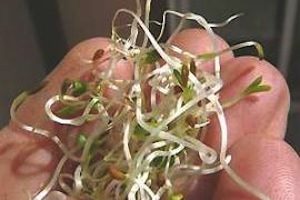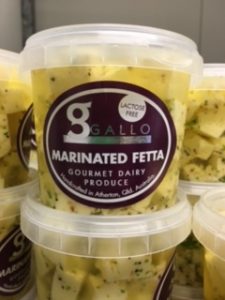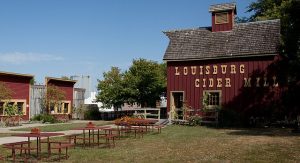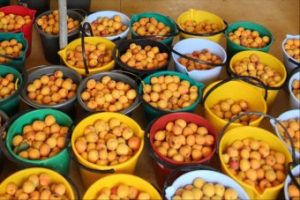Chris Waters, an associate professor of microbiology and molecular genetics at Michigan State University and colleauges report in the journal Biofouling that polysorbate, a safe additive found in everything from ice cream to cosmetics, seems to slow the toxic effects of E. coli poisoning.
 The findings show that polysorbates attack the protective biofilm in which E. coli lives and renders the deadly bacteria harmless.
The findings show that polysorbates attack the protective biofilm in which E. coli lives and renders the deadly bacteria harmless.
“Biofilms are multicellular communities of bacteria that are usually encased in a protective slime,” says Waters. “We found that polysorbate 80 obliterates the biofilm and takes away the E. coli’s ability to damage the host during infection. We think this is due to blocking the ability of E. coli to produce toxin.”
Specifically, the team focused on the potent strain isolated from Germany that swept through Europe in 2011, causing thousands of infections and more than 50 deaths. Waters and Shannon Manning have previously studies this strain. Having samples of the bacteria at hand helped the team, led by Rudolph Sloup, a graduate student in microbiology and molecular genetics, isolate compounds that inhibited biofilms.
However, the results didn’t come easily. Waters and his team scoured scientific literature to identify anti-biofilm compounds, but none of them inhibited biofilms of this E. coli strain. Finally, the team found that the 20th compound tested, polysorbate 80, obliterated E. coli’s ability to form biofilms in the lab.
The next step was to determine if the compound was effective in an animal model of the disease by administering polysorbate 80 to infected mice in their drinking water.
“During our animal infection studies, polysorbate 80 had no effect on the numbers of infecting E. coli. This was a little shocking, especially based on how promising our earlier tests had been,” Waters says. “Later, though, our pathology tests showed that polysorbate 80 essentially blocked all toxicity, even though it didn’t reduce the number of bacteria.”
“Antibiotic use can often cause more harm than good with these types of E. coli infections because it causes the bacteria to release more toxin and it drives antimicrobial resistance,” Waters says. “Our results indicate that polysorbate 80 makes this strain of E. coli harmless, without these negative side effects. This approach also doesn’t disrupt patients’ natural microbiome leading to a healthier gut.”
Since polysorbate 80 is categorized as a GRAS (generally regarded as safe) compound, it doesn’t require FDA approval to be used as a treatment. Along with its potential for disarming the deadly German E. coli outbreak, polysorbate 80 could potentially help tackle more-common E. coli infections such as traveler’s diarrhea.
The next steps for this research will be to identify how polysorbate 80 inhibits biofilm formation and test its activity in other infection models.
Additional researchers from Michigan State and the University of Texas contributed to the study. Partial funding came from the National Institutes of Health and a Strategic Partnership Grant from the MSU Foundation.
Polysorbates prevent biofilm formation and pathogenesis of Escherichia coli O104:H4
The Journal of Bioadhesion and Biofilm Reseach, Volume 32, Issue 9, http://dx.doi.org/10.1080/08927014.2016.1230849
http://www.tandfonline.com/doi/abs/10.1080/08927014.2016.1230849?journalCode=gbif20&
Escherichia coli biotype O104:H4 recently caused the deadliest E. coli outbreak ever reported. Based on prior results, it was hypothesized that compounds inhibiting biofilm formation by O104:H4 would reduce its pathogenesis. The nonionic surfactants polysorbate 80 (PS80) and polysorbate 20 (PS20) were found to reduce biofilms by ≥ 90% at submicromolar concentrations and elicited nearly complete dispersal of preformed biofilms. PS80 did not significantly impact in vivo colonization in a mouse infection model; however, mice treated with PS80 exhibited almost no intestinal inflammation or tissue damage while untreated mice exhibited robust pathology. As PS20 and PS80 are classified as ‘Generally Recognized as Safe’ (GRAS) compounds by the Food and Drug Administration (FDA), these compounds have clinical potential to treat future O104:H4 outbreaks.










